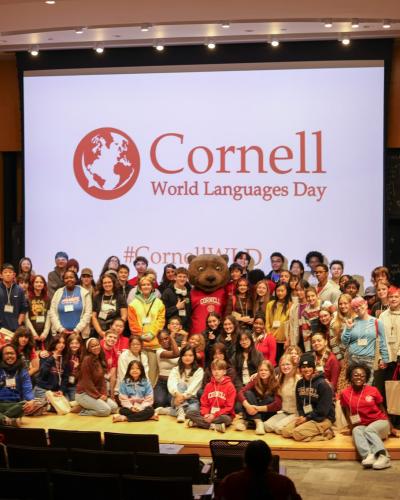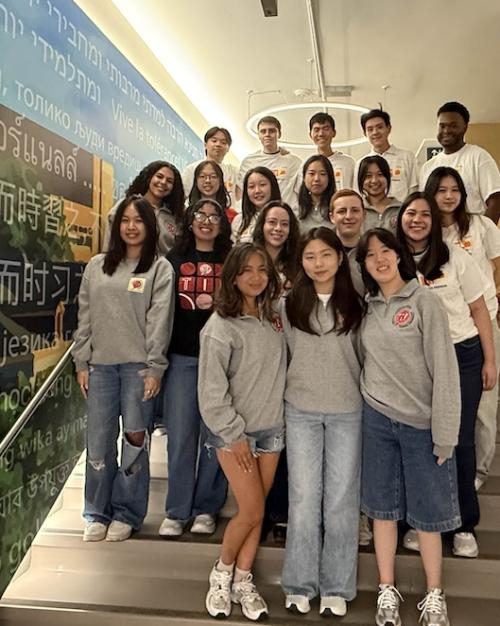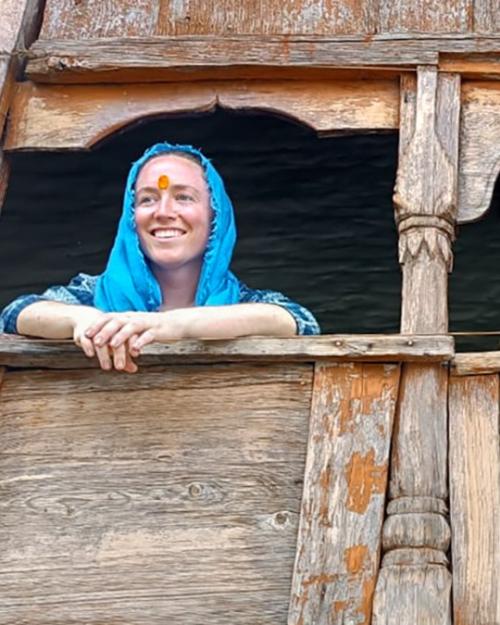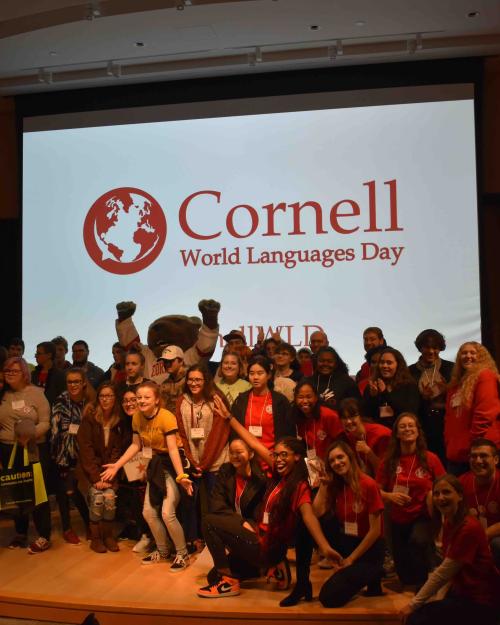Wendy Wolford is Cornell’s vice provost for international affairs and the Robert A. and Ruth E. Polson Professor of Global Development in the College of Agriculture and Life Sciences. As vice provost, she oversees the Office of Global Learning and the Mario Einaudi Center for International Studies; leads the university’s efforts in global engagement and internationalization; and oversees Cornell’s global partnerships. She also oversees two new units: the Cornell China Center, which recently opened an office in Beijing, and the Institute of Politics and Global Affairs.
How has the Office of Global Learning, created just before you took on the vice provost position, adapted to its role?
It really is still brand new as a combined unit, but it has been wonderful to see the Education Abroad (formerly Cornell Abroad) and International Services (formerly ISSO) teams come together. Both think about international affairs from the perspective of mobility and the community, respectively. In fact, many of our international students study or work abroad, combining mobility and community.
The international landscape has been challenging this past year – but the staff in the office is excellent. They’ve all doubled down to provide high-level immigration services, and to incorporate new programing to help international students feel welcome and get the most out of their experience here. At the same time, the Education Abroad folks are seeing increased demand for international experiences and trying to navigate a complex political environment.
What can Cornell do most effectively to address global issues?
One of my main priorities as vice provost is to support faculty and students in their international work. I am closely involved with the Mario Einaudi Center for International Studies. It’s the heart of area studies on campus, and every person in the center is passionate about international engagement. I have been a card-carrying member of the Latin American Studies Association for almost 25 years and now also the African Studies Association; connections to the academic and on-the-ground communities in these regions are vitally important for our work.
I would like to see every student at Cornell have the opportunity to have an international experience, and have that experience fit with their curriculum and give them exposure to international realities. Spending time doing international work is so often a transformational experience in students’ lives.
The Einaudi Center, now under the direction of our brilliant new director, Rachel Riedl, gives out about $1.3 million to students every year in travel funding. Many of the projects that students undertake are geared toward understanding those big, interdisciplinary challenges – helping small farmers grapple with the consequences of climate change, studying in China to build bridges between two cultures often presented as being direct opposites, or designing actual bridges for communities around the world.
Prospective students express their interest in these experiences, and we know, from surveys, that we don’t yet meet the demand. Increasing our ability to support, curate and expand high-quality international experiences is one of our main goals.
What is Cornell doing to help make that more possible?
We are trying to map international experiences onto students’ curricula more purposefully so they know from day one at Cornell that they can be in Paris during the spring of their sophomore year, and they can take classes they know will fit into their major. This way they can experience something new without falling behind.
Wolford chats with Naglaa Abdallah, left, chief of party for the Center of Excellence for Agriculture in Egypt, in 2019.
We are building up our exchange programs where students can swap places with students from dozens of other universities around the world. We’re also expanding our support for winter and summer term experiences, as this is where we are seeing the most demand for internships, short treks and engaged learning. We are offering language classes that are targeted to particular projects or disciplines, so that nutrition students who don’t necessarily need to be fluent, for example, can work in Ecuador with the benefit of a one- or two-week course that provides basic Spanish along with nutrition-specific terms.
Tell us a bit about the Global Grand Challenge initiative and its first theme of “Migrations,” which launched in October.
The Global Grand Challenge initiative launched last year with a two-day symposium on campus that brought together senior leaders, faculty and students to answer two questions: What are the biggest challenges facing humanity today, and what are the ones that Cornell can actually do something about?
After a lot of discussion, we chose the theme of migrations – the migration of people, plants and animals and the context in which they move. We’re looking at the unprecedented pace, scale and complexity of migrations on our planet today, and realizing that we have to truly change the way we think and teach about everything from food to politics, disease, urban settlement, culture and so on – to take account of movement.
Migrations is a perfect theme for Cornell because nearly every college and unit at the university does work that touches on migration in some way, from animal and plant science, to law and labor, to history and the arts.
We have put out calls for proposals for different opportunities, from individual research teams to interdisciplinary projects and workshops to student engagement. We’re working with the Office of Engagement Initiatives on getting students hands-on opportunities related to migrations. Already, a professor in policy analysis and management connected with a professor in physics about how to collaborate on big data visualization and modeling of migrations and movements.
With the new Cornell China Center officially open, talk a little bit about the university’s connection to China.
Cornell has been involved with and tightly linked to China for more than 100 years. We have a more in-depth presence in China than most of our peers in terms of the number of influential Cornell graduates who have led major transformations in modern China and the number of students, faculty, collaborations and projects we have today. We have had a strong presence in agriculture, engineering, law and the social sciences. The idea of having a central office is something that this university has been working toward since the early 2000s.
We recently moved the Cornell China Center into a new office and held an academic symposium there in November and a larger Cornell-China Forum in a nearby hotel. The new space is very well located in Beijing, and we are excited that local alumni and faculty and others will be able to use it to hold workshops and have alumni events. People are always going through Beijing, and this gives them a Cornell “home” to work out of.
Ying Hua, the faculty director for the center, organized the Cornell-China Forum in part to highlight the research that we funded through last year’s China Innovation Awards to interdisciplinary teams of Cornell faculty and collaborators in China. We funded eight projects from 34 submitted proposals.
Finally, what is the role of the Institute of Politics and Global Affairs on campus?
This new institute was created to enhance Cornell’s voice in policymaking and politics at national and international levels. It is led in New York City by Steve Israel, former congressman and author. We just celebrated the Ithaca launch with a panel organized by the faculty director, Doug Kriner, on whether President Trump has “changed everything.” I can’t give away the answer if you didn’t come to the event, but there will be more events exploring policy and politics and building connections between stakeholders. The institute is bringing together an exciting and dynamic group of faculty, students, former and current politicians and pundits.
This story also appeared in the Cornell Chronicle.





